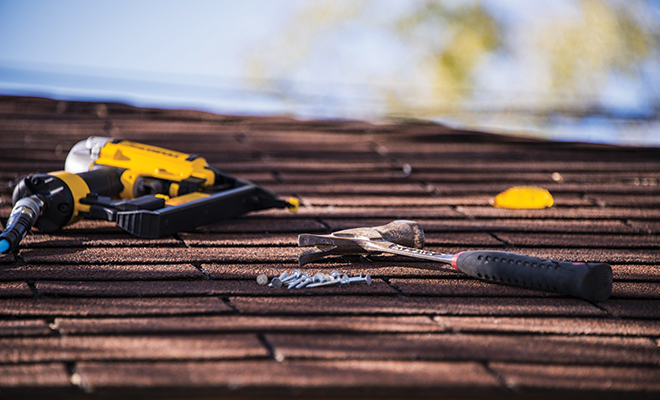
Ten Top Questions for Your Roofing Contractor
Unless you’re a building contractor, the process of replacing your home’s roof is something you probably haven’t thought about much. That is, until the day comes when you can’t procrastinate any longer.
Suddenly you need to learn about roofing materials and procedures. Most important of all, you need to decide on a roofing contractor.
A new roof may be one of your biggest home improvement expenses, so it’s important to look for a professional roofing contractor who can explain the reroofing process and be open to answering all your questions. You need to feel confident that you’ve selected the best contractor for the job before turning over your hard-earned money.
When you sit down for a meeting with a roofing contractor or salesperson, be sure to ask these ten questions.
Q: What is the full name of your company and what is its address?
A: These details can help you find out more about a company’s reputation. Look for an address that’s a permanent place of business rather than a post office box. Some related questions include who owns the company, how long has it been in business and whether local referrals can be provided. You want to hire a local company with a good track record that will be around later to fix anything that may go wrong.
Q: What kind of insurance does the company carry?
A: The contractor’s insurance will protect you from potential lawsuits in case an accident occurs while your roof is being installed. Ask to see proof of the company’s insurance and worker’s compensation coverage. Also, ask if the company uses subcontractors and find out how they are insured.
Q: Is the company a licensed contractor?
A: Not all states require roofers to be licensed, so research code requirements in your area and be sure to work only with contractors who comply. If a license is required, ask to see it and make sure it’s up to date. Make sure any subcontractors are also licensed.
Q: How will roofers access my roof?
A: In some cases, roofers need to access a home’s roof from the interior. You and your contractor should come to an understanding about who will be entering your home and how often.
Q: Does anything need to be moved?
A: Construction on your home’s roof can impact your home’s contents. Find out if large items should be removed from walls or if items stored in a garage or attic should be relocated.
Q: What will you do with debris from the old roof?
A: All discarded parts of the old roof should be removed as the new roof is installed. Get a commitment from the roofer that old roofing materials, including shingles and nails, will be removed or contained on a daily basis. It also pays to ask how your yard and driveway will be protected from falling debris; options are covering plants with tarps and establishing traffic patterns that avoid plant beds.
Q: Will you inspect the decking?
A: Roof decking, the foundation of the roof, can become water damaged or rotted over time. It’s important to determine if some or all of the decking needs to be replaced when the roof is replaced. Find out what your contractor plans to do ahead of time.
Q: What happens to my rain gutters when you install a new roof?
A: The method used to install a new roof can make all the difference when it comes to protecting pre-existing parts of your roof such as rain gutters. Ask the company if any special steps will be taken to protect the parts of your roof that need to remain in place, or how they will respond if damage occurs.
Q: Will you provide a detailed proposal before I sign a contract?
A: A roofing contractor should give you a cost breakdown and timeline for completion before you sign a contract. Ask about issues that could raise the cost or delay the project, including weather-related delays. Check on how your home will be protected if it rains or snows before the new roof is in place.
Q: What is covered by warranty and for how long?
A: You should ask about two types of warranties for your new roof; the first is the manufacturer’s warranty for roof materials and the second is for your roofing contractor’s labor. According to experts, a one- or two-year warranty for labor is standard. Make sure to get all warranty promises in writing.
One final tip—read your roofing contract and all warranties carefully before signing. Make sure you agree with all the details related to materials, labor, cleanup and the final completion date. Remember that a top-notch contractor will never shy away from questions and will do what it takes to give you the information you need before you make a commitment. ■
Sources: certainteed.com, money.com and classicmetalroofingsystems.com.







